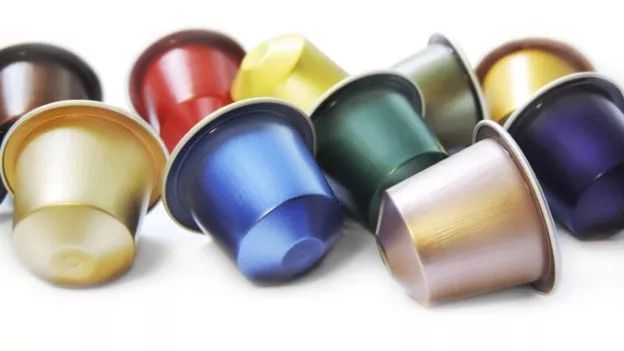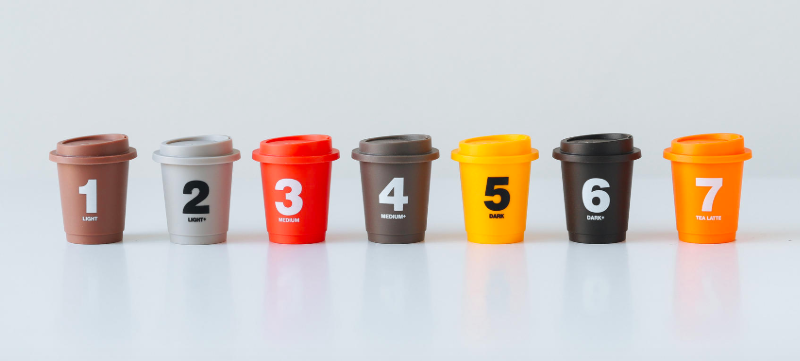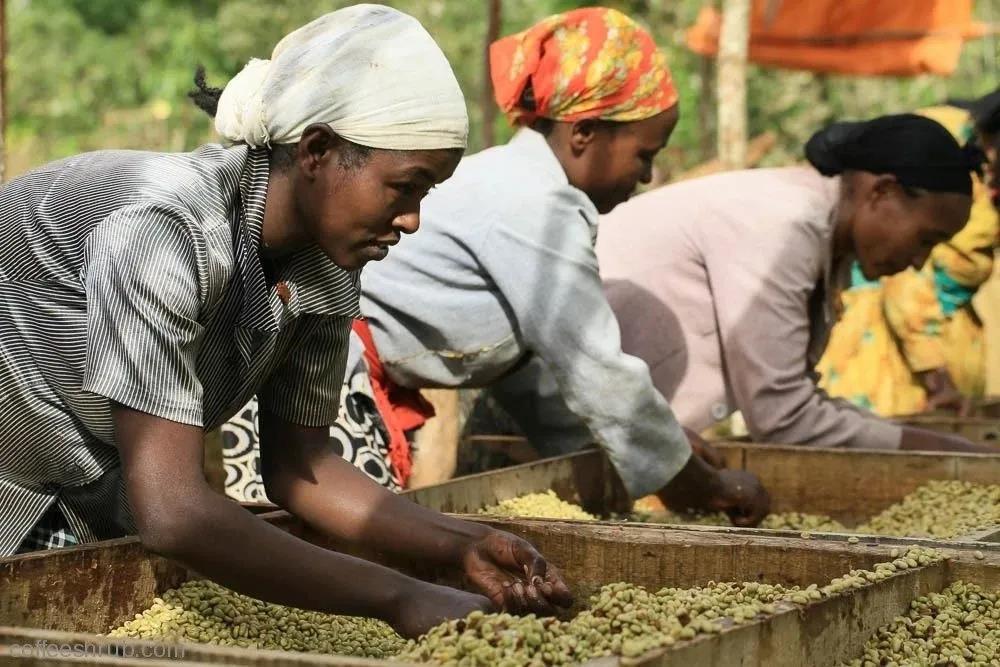The history of Nestl é and JDE introduces Nestl é and JDE launch coffee capsule recycling program!
According to foreign media reports, Nestl é and JDE announced the launch of their coffee capsule recycling program Podback on April 16.
Foreign media said: the local council in the UK will recall many brands of coffee capsules, including strong coffee, Duoquisi, Tassimo, Lakers 39th OR and Starbucks.
But this is not the first time Nestl é has launched a coffee capsule recycling program.

Nespresso, which has previously focused on capsule coffee makers, has also launched a capsule recycling program.
Nestl é first launched the capsule recycling program in 1991, as its coffee brand Nespresso Nongyu Coffee proposed and extended the plan to the Chinese market in 2015, consumers can take the used coffee capsules to offline boutiques for recycling, but since Nespresso boutiques are not available in all cities and consumers are unable to send capsule coffee back to Nespresso boutiques for recycling, July 2019 Nespresso has worked out a new plan for the capsule recycling plan, and Nespresso and JD.com Logistics have joined hands to launch coffee capsule online recycling services nationwide.
The purpose of introducing recycling capsules used by consumers is to achieve Nespresso sustainable development and environmental protection.
The information shows that:
Nestl é, founded in 1866, is the world's largest food manufacturer. In 1986, Nestl é launched four NESPRESSO coffee capsules Nes (Nestl é Nestle acronym) + presso (espresso espresso), which became popular all over the world. Nespresso, a subsidiary brand of Nestl é, is headquartered in Lobsang, Switzerland. Nespresso officially entered the Chinese market in 2007, and then the coffee capsule entered the US market in 2015, and not long ago. Nestl é also revealed plans to further expand its three Nespresso capsule production sites in Switzerland.
JDE Peet's first came into contact with coffee capsules in 2016, when JDE Peet's launched disposable coffee capsules, and the Andr é zieux factory, which plans to expand, was put into production at that time. It is worth noting that in October 2020, JDE Peet's announced a further expansion of the capsule coffee market, JDE Peet', the second largest coffee group in the world. S said in a statement that it will invest 110 million euros (now about 866 million yuan) to expand the global capsule coffee production line, and said that the new production line will be installed in phases over the next 18 months, of which the new production line in Andr é zieux, France, will be put into operation in the first half of 2021.

JDE is composed of DE MasterBlenders 1753, the coffee business of the former US food listed company Sara Lee, and the coffee business of Mondelez International. At the beginning of 2020, European packaged coffee giant JDE (Jacobs Douwe Egberts) merged with American coffee chain Peet's Coffee into JDE Peet's. On May 29th of the same year, JDE Peet's was listed in Amsterdam, the Netherlands and became the largest IPO in 2018.

JDE Peet's is listed on the Amsterdam Stock Exchange
At present, the main share of the global packaged coffee market is divided by Nestl é and JDE, among which, in the capsule coffee market, Nestle's Nespresso occupies a dominant position.
* Image source: Internet
Important Notice :
前街咖啡 FrontStreet Coffee has moved to new addredd:
FrontStreet Coffee Address: 315,Donghua East Road,GuangZhou
Tel:020 38364473
- Prev

What do time-honored brands like coffee in the cross-border coffee market? Three and a half Yongpu Coffee characteristics of Sumitagawa Coffee
With the development of coffee industry, a large number of consumer groups have been accumulated in a short period of more than 20 years. There is no doubt that coffee has become one of the fastest growing beverage categories in recent years. From the monopoly of Nestl é instant coffee in the first wave of coffee to the opening of the first Starbucks on Chengfu Street in Beijing in the second wave of coffee in 1997, to Chinese mainland around 2010.
- Next

Climate change affects the yield and quality of Ethiopia's Yega Xuefei boutique coffee beans
Professional coffee knowledge exchange more coffee bean information follow coffee workshop (Wechat official account cafe_style) A new study conducted by an international research group shows that climate change is affecting Ethiopia, Africa's largest coffee producer! In the future, the production of Ethiopia's boutique coffee beans will continue to decline, and the flavor will become more and more insipid. Carry out the research
Related
- Unexpected! Ruixing Telunsu lattes use a smoothie machine to foam milk?!
- % Arabia's first store in Henan opens into the village?! Netizen: Thought it was P's
- Does an authentic standard mocha coffee recipe use chocolate sauce or powder? Mocha Latte/Dirty Coffee/Salty Mocha Coffee Recipe Share!
- What is the difference between Vietnam egg coffee and Norway egg coffee? Hand-brewed single product coffee filter paper filter cloth filter flat solution!
- What is the difference between sun-cured and honey-treated coffee? What are the differences in the flavor characteristics of sun-honey coffee?
- How to make Italian latte! How much milk does a standard latte use/what should the ratio of coffee to milk be?
- How to make butter American/butter latte/butter Dirty coffee? Is hand-brewed coffee good with butter?
- Is Dirty the cold version of Australian White? What is the difference between dirty coffee/decent coffee and Australian white espresso?
- Relationship between brewing time and coffee extraction parameters How to make the brewing time fall to 2 minutes?
- Got entangled?! Lucky opens a new store, Mixue Ice City, and pursues it as a neighbor!

